SUMMARY
This is AI generated summarization, which may have errors. For context, always refer to the full article.
![[Only IN Hollywood] Steven Spielberg, feted in Berlinale, opens up about family traumas in ‘The Fabelmans’](https://www.rappler.com/tachyon/2023/02/spielberg.jpg)
LOS ANGELES, USA – “When something rings a bell, often the subconscious bell that’s being rung are traumatic things that have happened to all of us when we were young people,” Steven Spielberg said a few hours before he received an honorary Golden Bear for lifetime achievement on February 21 at the Berlin International Film Festival.
One of cinema’s most acclaimed filmmakers was in a reflective mood at the Berlinale press conference and opened up some more about The Fabelmans, his most personal film to date.
Steven described The Fabelmans, which he directed and co-wrote with Tony Kushner, as the “most emotional movie” he ever made.

The film, inspired by his growing up years as a budding filmmaker and his family life, impacted by his parents’ divorce, was screened as part of the award ceremonies for the director at the Berlinale Palast. U2 frontman Bono presented the award to Steven, followed by a screening of the film.
“I, obviously as a child, was very traumatized by the breakup of my family,” Steven was quoted as saying in the transcript of the Berlinale press conference. “I’d be attracted to subjects like Empire of the Sun, of a boy. A war separates a boy from his parents. He spends the entire time in a Japanese internment camp in China.”
Steven, who won this year’s Golden Globe best director award for The Fabelmans, added about Empire…, the 1987 war drama that starred Christian Bale, then 13: “ I’m sure had my parents not gotten a divorce, I would not have chosen Empire of the Sun as a film to direct. So, I think all of that is part of the gestalt that motivates all of us to make those key decisions about commitment.”
When he was 16 years old, Steven found out that his mother, Leah Adler, was in love with a family friend, Bernie Adler. Leah and Steven’s father, Arnold Spielberg, divorced when the aspiring director was 19. Leah would go on to marry Bernie in 1967.
Gabriel LaBelle plays Sammy, inspired by Steven’s own life as a teenager. The parents are played by Michelle Williams and Paul Dano, with Seth Rogen portraying the man Steven regarded as an uncle. Judd Hirsh is also in the film which also won the Golden Globe best picture – drama this year.
In the coming Oscars, The Fabelmans is up for seven Academy Awards, including best director, picture, screenplay, actress (Michelle), and supporting actor (Judd).
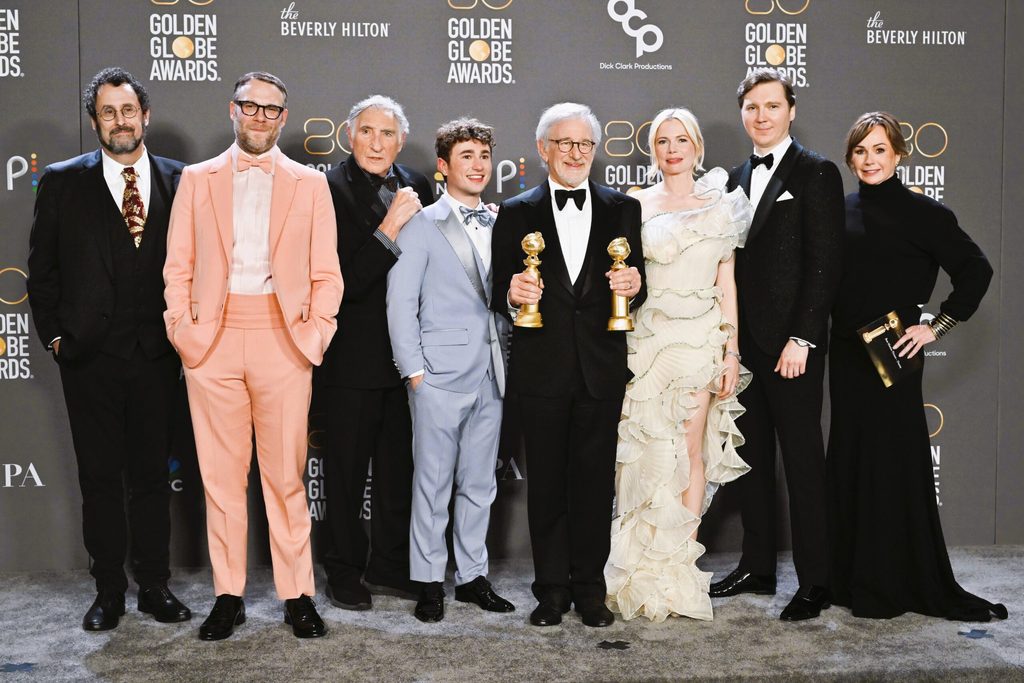
Steven stressed that he does not see making films as therapy but artists inevitably express certain traumas in their work. “We get a chance to express that trauma through painting, music, design, filmmaking or writing books, through short stories. All of that comes out in the wash, even if you don’t intend it to.”
The 76-year-old filmmaker explained that receiving lifetime achievement honors (he has received several) make him reflect, which he admitted he does not do a lot of but the death of his parents and staying at home for a long time during the pandemic also made him pause and think.
He said, “I must have done a couple of things right over the last 55 years but the honor of a lifetime achievement award simply forces me to do something I don’t often do. It forces me to reflect and reflecting means I’m not moving forward.”
“For me, when I reflect, it means I’m spending too much time in neutral, just remembering. When I lost my dad three years ago and when my mom, Leah Adler Spielberg Posner, died six years ago today, it put me in a reflective mood.”
He paid tribute to his mom. “My mom, as you know from the movie, the way Michelle Williams very accurately portrayed my mom, was very forthright. She celebrated life, every day of her life.”
“My mom really believed in being reactive. And by being reactive, she made a lot of decisions that were reactive. But it’s who she was. If she wanted to do something, she did it.”
“If she wanted to jump in the Jeep and pile us all in to go look at the stars in the middle of the desert in Arizona, that would be her idea. And we would jump into the Jeep, we’d go see the stars.”
“And so, in a sense, when my mom had this restaurant (Milky Way in Los Angeles) for all these years before she passed away, she would always say, ‘When are you going to tell our story?’ My mom used to say, ‘I’ve given you so much good material. When are you going to use that material?’”

“And during the pandemic, that was one of the things that crossed my mind. The pandemic so scared me, the fear in the early stages of the pandemic at the beginning of 2020 in April when we went inside, didn’t come out for a long time.”
“I started thinking about mortality and aging. In a way, the fear I felt about the pandemic gave me the courage to tell my personal story.”
He elaborated how staying home at the height of the COVID outbreak also helped spawn The Fabelmans. “I just somehow felt in the middle of the pandemic when I had more time sequestered in my house with my family. Thank God, my family was with me. But we weren’t driving – we weren’t going anywhere.”
“All I could really do was be with my grown kids. Some of them moved back into the house for the pandemic with my wife and my dog. Basically, that gave me the time to take a big, deep breath and to determine if there was one movie I haven’t made yet that I would now have the time to make.”
“What would that be? And the answer has always been with me all my life. I’ve always wanted to tell the story of my mother and father, my sisters, and this amazing struggle between art and family. And it’s just been on my mind all my life.”
“It has come out in all my films. All my films really are personal and many of them are about family but nothing that is so specific to my own experiences as The Fabelmans.”
Asked which of his films was the toughest to do, Steven answered, “I know it’s a big cliché to say this and it’s not very newsworthy but my films are like my children. I do not have a favorite. But at the same time, I can tell you the hardest film I ever made was Jaws. There you go. That was the hardest film I ever made physically.”
“And the most emotional movie I ever made for a long time was Schindler’s List. But now the most emotional film I ever was involved in was The Fabelmans, which was very difficult for me because I was telling a story with a lot of funny parts.”
“But with a lot of parts that were very traumatizing and even in recreating those scenes, it was very hard to relive it. So that became maybe emotionally the most involved I was thus far in making a film.”
“That’s one of the things, combined with the extra time I had during COVID, to really do an accounting and do look back. I did look back to try to figure out what story I could tell about my formative years.”
“That, in a sense, is what a lifetime achievement award does. It sends you back into the past, whether you want to go there or not and it makes you very reflective. And to be honored in Berlin, which is one of the most august festivals in history, is a tremendous high point in my life.”
Steven looked back further – into his childhood – on how his filmmaking dreams began, which is depicted, with creative variation, in The Fabelmans. “When I was nine years old, I believe, my parents went out to a movie and they said it was too violent and they wouldn’t take me to it. It was a Western. And we were living in Haddon Heights, New Jersey.”

“They walked to the local cinema and they went to see John Ford’s The Searchers. They came back and wouldn’t stop talking about it. So, I went the next day, it was on a Saturday. They went Friday night.”
“On Saturday, I went into the petty change vase. We had quarters. I took out two quarters. I walked a mile and a half. I saw The Searchers unaccompanied, all by myself.”
“I probably didn’t understand the movie at seven as well or nine or eight. When I saw the movie multiple times after that, I understood it better but I know how it feels to be left behind. And then realizing that’s a film that I could have used my mom and dad helping to explain it to me as I was watching it.”
One of the best moments in The Fabelmans is Steven’s reenactment of his real-life first-time encounter with a cranky John Ford, played with gusto by another director, David Lynch, in a cameo.
Steven shared what he would not do when he meets a young person dreaming of becoming a director, like he was in his Ford meeting in a studio lot. “I’m not going to say, ‘Get the fuck out of my office.’ That’s the big difference between me and John Ford. He is one of the greatest filmmakers on the face of the planet, always has been, always will be. I’ve always been a tremendous admirer of his.”
“That scene in The Fabelmans is word for word, to the best of my recollection of what actually happened to me. John Ford said no more or no less than the words he speaks in that film.”
“Because I’ve been telling the story to friends of mine for so many years – the dialogue is closer to my memory when that incident actually happened. So, I think that might be the most accurate scene of the movie, word for word, anyway.”
“John Ford was a force of nature. He really was. For many years, I was really scared by what he said [to me], embarrassed by what he said and shamed by what he said. And 20 years later, I realized that what he had actually done was given me a tremendous gift.”
“He didn’t just invite me into his office to let me tell him how much I love movies and how much I love his movies but he actually gave me some advice that made sense to me. Not in the moment.”
“I was still in high school. I was a junior in high school when I met him. I was actually 16 years old. But that advice he gave me about the horizon was a gift. And it was a gift.”
“He might have done it in a really gruff way like a really tough headmaster of an all-boys school but it was something I will always be grateful for.”
On his pointers to young filmmakers, Steven replied, “The advice I usually give is not so much about how to make shots interesting but how to recognize interesting stories and how to tell stories. There are so many opportunities to learn from so many great filmmakers working today.”
“I learned actually more from young filmmakers today than I do from some of the older filmmakers who made movies 80, 90, 60 years ago because some of the new filmmakers today are doing such audacious work. The Daniels (Daniel Kwan and Daniel Scheinert) – such amazing genius work on Everything Everywhere All at Once.”
“I’m learning from young filmmakers so much. But one of the things I’m learning is you got to have a good script. I’ve always said, ‘If it ain’t on the page, it ain’t on the stage.’ And I really believe that.”
“So, my advice is, if you want to be a movie director, first of all, write, and if you don’t feel that’s your strong suit, meet somebody whose strong suit is storytelling and writing. Form a little limited partnership because it’s the stories that are going to get an audience to pay attention to you, not the shots.”
As to what projects he is already planning, Steven remarked, “I wish. I mean it. I was so involved with two films back-to-back that were very personal for me in different ways. West Side Story – I wanted to make a musical my entire life. That’s the greatest musical ever written for the Broadway stage.”

“I didn’t want to do anything. I had developed some original musicals, which I didn’t care for. And then The Fabelmans happened quite spontaneously while I was still in post-production on West Side Story.”
“Tony Kushner and I began to write The Fabelmans. We shot The Fabelmans before West Side Story even came out so those two films overlapped. Because that was such a time drain, I never had a chance to think about what I am going to do when these two movies are over.”
“I sit here in front of all of you saying, ‘I don’t know what I’m going to do next. I have no idea.’ It’s kind of a nice feeling, and it’s also a horrible feeling. It’s nice that I can actually have control of my life again and make my own choices in my real life.”
“But I need to work and I love to work and that’s the biggest question I’m going to have for the rest of the year, trying to figure this out.”
Steven confirmed in Berlin that he is actively involved in the adaptation of Stanley Kubrick’s unproduced Napoleon Bonaparte script as a seven-part HBO limited series. But he did not announce if he will also direct aside from produce.
There are unconfirmed reports that Steven may direct a Josh Singer screenplay based on the Lt. Frank Bullitt character played by the late Steve McQueen in Bullitt. – Rappler.com
Add a comment
How does this make you feel?
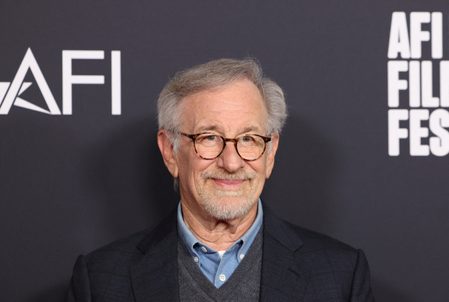
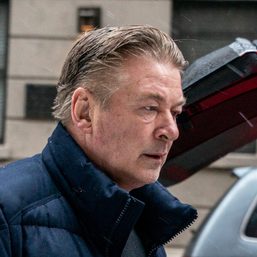

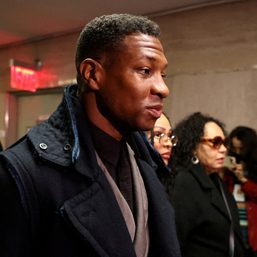
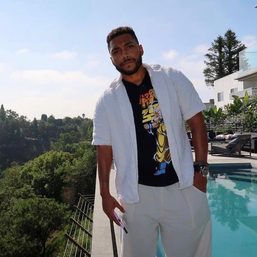
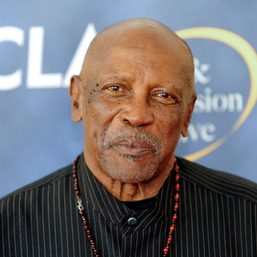
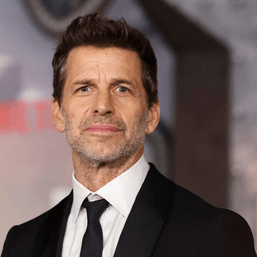
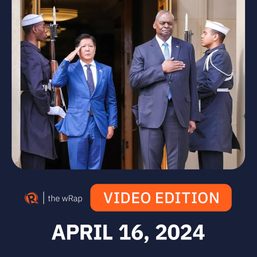
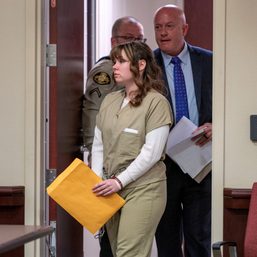

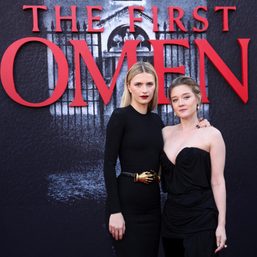
There are no comments yet. Add your comment to start the conversation.